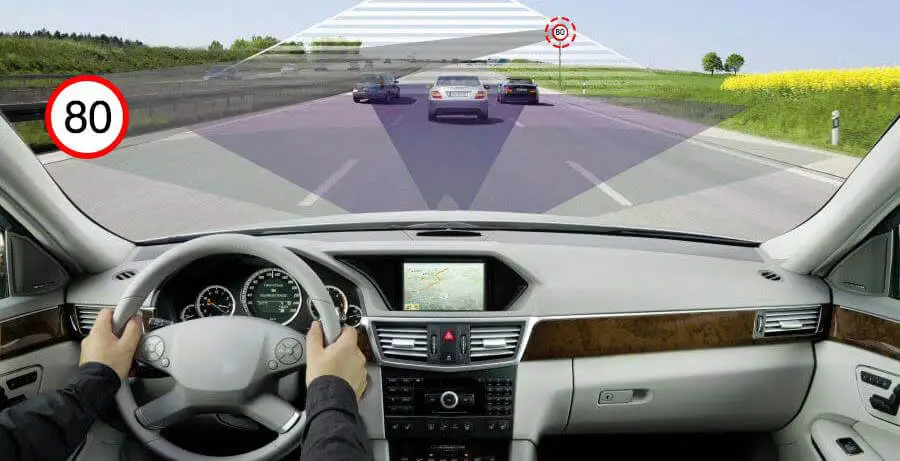Obtaining a driver’s license is a rite of passage for many individuals, symbolizing newfound independence and mobility. However, before one can legally take to the roads, they must pass a driving test. Road tests, conducted by government authorities or accredited institutions, assess an individual’s ability to operate a motor vehicle safely and responsibly. While these tests are essential for road safety, they can be anxiety-inducing for many aspiring drivers.
In this detailed guide, we explore individuals’ most common problems when taking a road test and offer practical tips to overcome them.
Challenges when Taking A Driving Test
Some challenges when people are taking a driving test include:
1. Nervousness and Anxiety

Nervousness and anxiety are perhaps the most universal issues encountered during a 路試. The pressure to perform well in front of an examiner can be overwhelming, leading to shaky hands, sweaty palms, and impaired judgment. This anxiety can affect a person’s driving skills and decision-making abilities.
Tip: To combat nervousness, practicing as much as possible before the test is crucial. Familiarity with the vehicle and the test route can boost your confidence. Deep breathing exercises and positive self-talk can also help alleviate anxiety on the test day.
2. Lack of Preparedness

One of the most common reasons for failure in road tests is a lack of preparation. Many aspiring drivers underestimate the importance of thorough preparation, which involves understanding road rules, practicing driving maneuvers, and being well-acquainted with the vehicle they’ll be tested in.
Tip: To overcome this problem, enroll in a driver’s education program for professional training. Study the driver’s manual and take practice tests to ensure you have a solid grasp of the rules of the road. Additionally, practice driving in various conditions and different types of traffic to build your confidence.
3. Poor Observation Skills

Road tests assess your ability to operate a vehicle and your observation skills. Many candidates fail their tests because they overlook crucial details, fail to check blind spots, or neglect to use mirrors effectively.
Tip: Improve your observation skills by practicing the “SEE” method – Search, Evaluate, and Execute. Continuously scan your surroundings, use mirrors frequently, and always check blind spots before changing lanes or making turns.
4. Failing to Yield Right of Way

Failing to yield the right of way is a common mistake road test takers make. This error can lead to accidents and is critical in determining whether a candidate passes or fails their test.
Tip: Study and understand the rules regarding the right of way in your region. Practice scenarios where you must yield and habitually do so even if you’re unsure. Remember that safety should always be your top priority.
5. Speed Control

Maintaining appropriate speed is essential during a road test. Many candidates struggle with driving too fast or too slow, which can lead to unfavorable outcomes.
Tip: Practice maintaining a consistent and safe speed. Pay attention to speed limits, especially in school zones and residential areas. Use your vehicle’s speedometer as a guide and adjust your speed accordingly.
6. Parking Problems

Parking can be a stumbling block for many test-takers, especially parallel parking. It requires precision, spatial awareness, and practice to execute correctly.
Tip: Practice parallel parking in various locations to become comfortable with the maneuver. Use cones or markers to create a simulated parking space and practice until you can do it confidently. Don’t forget to use your mirrors and turn signals appropriately while parking.
7. Ignoring Traffic Signs and Signals

Ignoring traffic signs and signals is a major road test failure. This includes running red lights, failing to stop at stop signs, and disregarding other essential road signs and signals.
Tip: Pay close attention to all traffic signs and signals on the road. Always come to a complete stop at stop signs and wait for a green light at traffic signals. Ignoring these basic rules can have serious consequences.
8. Overconfidence

While underconfidence can be detrimental, overconfidence can also lead to mistakes during a road test. Some candidates believe they know everything and become complacent, leading to errors in judgment.
Tip: Strike a balance between confidence and caution. Acknowledge that there’s always something new to learn about driving, and approach the test with a mindset of continuous improvement.
9. Distractions

Distractions are a growing road problem that can significantly impact your performance during a road test. Distractions can lead to accidents and test failure, whether texting, adjusting the radio, or engaging in conversation.
Tip: Before the test, ensure that your vehicle is free from distractions. Turn off your phone, keep the radio volume at a minimum, and focus solely on driving. Your full attention should be on the road and the tasks at hand.
10. Poor Defensive Driving Skills

Road tests emphasize the importance of defensive driving, which involves anticipating and reacting to potential hazards. Candidates who lack these skills may fail their tests due to unsafe driving practices.
Tip: Practice defensive driving techniques by keeping a safe following distance, scanning the road ahead, and being prepared to react to unexpected situations. Demonstrate your ability to make safe decisions while driving.
Conclusion
Passing a road test is a significant achievement requiring knowledge, skills, and confidence. Understanding the common problems faced during a road test and taking proactive steps to address them can greatly improve your chances of success. Remember that practice, preparation, and a focus on safe driving are key factors in passing your road test and becoming a responsible and competent driver. By acknowledging and addressing these common issues, you can confidently approach your road test and increase your chances of earning your driver’s license.